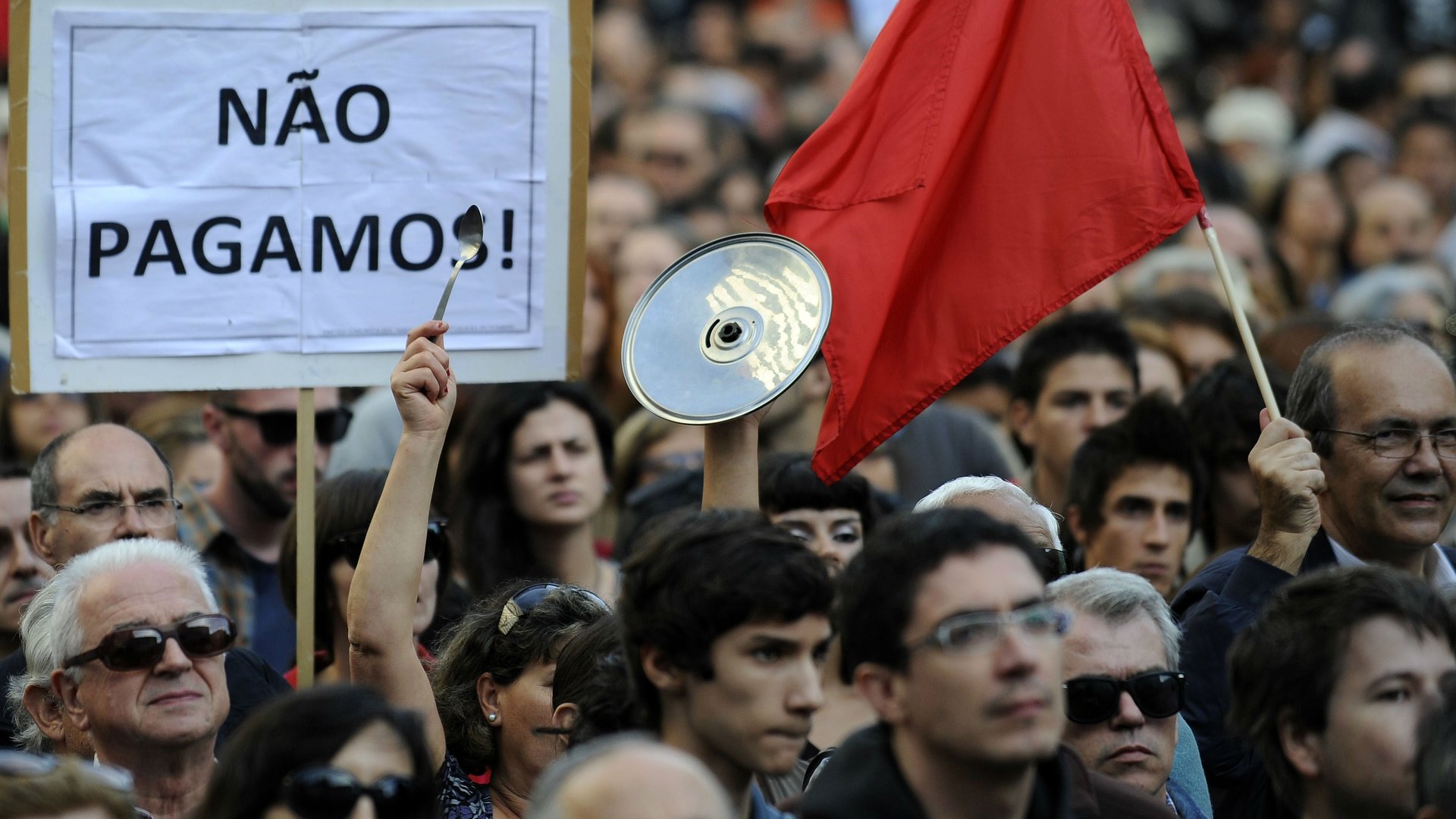Portugal’s austerity experiment: tax hikes, spending cuts, and another year of recession
Portugal is the latest euro crisis country to unveil even harsher austerity measures to meet strict conditions of a multi-billion euro bailout. The 2013 budget includes tax hikes totaling €4.3 billion and spending cuts, including to pensions, equalling €2.7 billion. The tax increases affect things like capital gains, property, and middle-class incomes, equaling up to three months’ wages.

Portugal is the latest euro crisis country to unveil even harsher austerity measures to meet strict conditions of a multi-billion euro bailout. The 2013 budget includes tax hikes totaling €4.3 billion and spending cuts, including to pensions, equalling €2.7 billion. The tax increases affect things like capital gains, property, and middle-class incomes, equaling up to three months’ wages.
The budget is the the harshest in recent history to meet terms of a €78 billion ($100.9 billion) international bailout. Finance Minister Vitor Gaspar said there’s no choice. Failing to continue down the road of austerity, he said, would lead to disaster for the southern European nation.
Political opposition called the plan “a fiscal time bomb”, while thousands of demonstrators gathered outside Parliament in Lisbon to call for government to step down, as the budget was presented.
The plan’s unveiling comes amid a growing divide over how to handle the European debt crisis. Leaders at the International Monetary Fund, one of Portugal’s lenders, are questioning the impact of austerity on growth, while leaders from other nations such as Germany are saying to stay the course or risk greater disaster. Even within governments, opinions are split.
Portugal’s President Aníbal Cavaco Silva says he hopes European lenders are listening (paywall) to the IMF. He said:
In the present circumstances, it isn’t correct to demand a country under fiscal adjustment to fulfill deficit targets at any cost.
While Portugal has been given more time by creditors to meet budget goals, the economy is continuing to deteriorate. In deep recession, the economy is expected to contract 3% this year, while unemployment is near 16%.
Until now, protests have been relatively tame compared to those in Greece and Spain. But last night, after protestors built a large fire outside of Parliament—and some even stripped naked to make their point—things grew ugly with demonstrators throwing bottles at police and police responding by chasing them off with batons.
The longer the crisis carries on without resolution, the more the course everyone’s on looks misguided. João Duque, head of the School of Economics and Management at Lisbon’s Technical University, suggests leaders both in Portugal and Europe don’t know what they’re doing. He said:
I feel like a guinea pig in an economics experiment. The measures will accentuate the crisis we already face, that is evident.